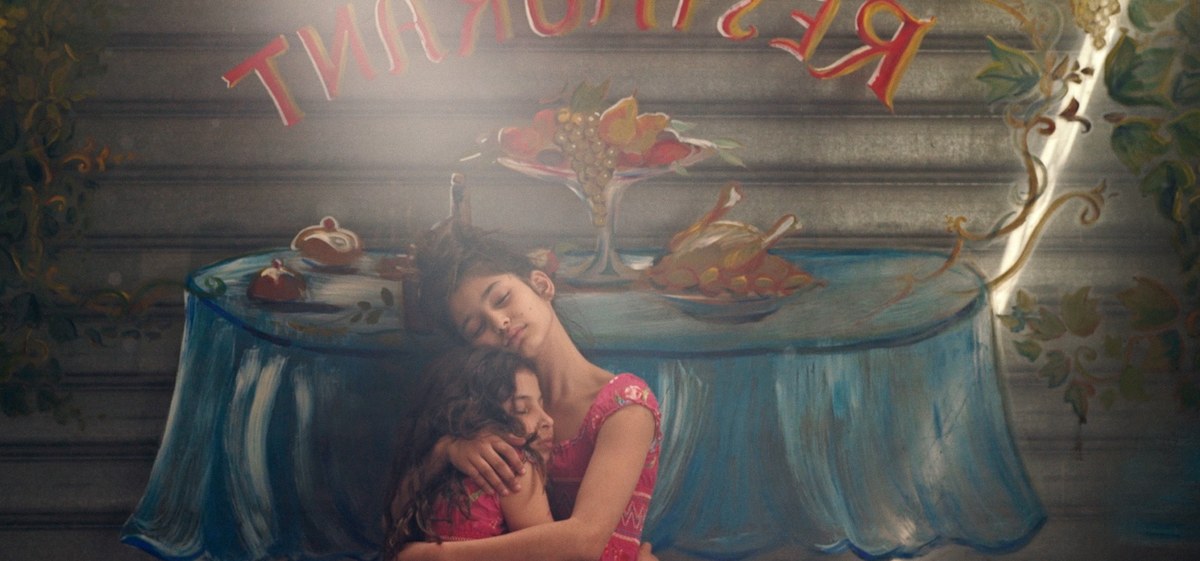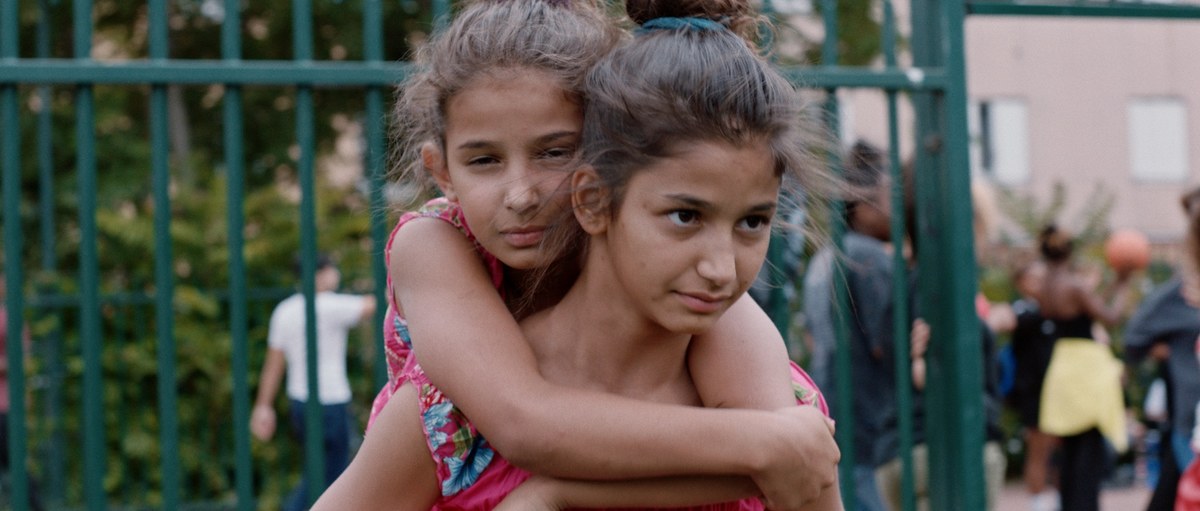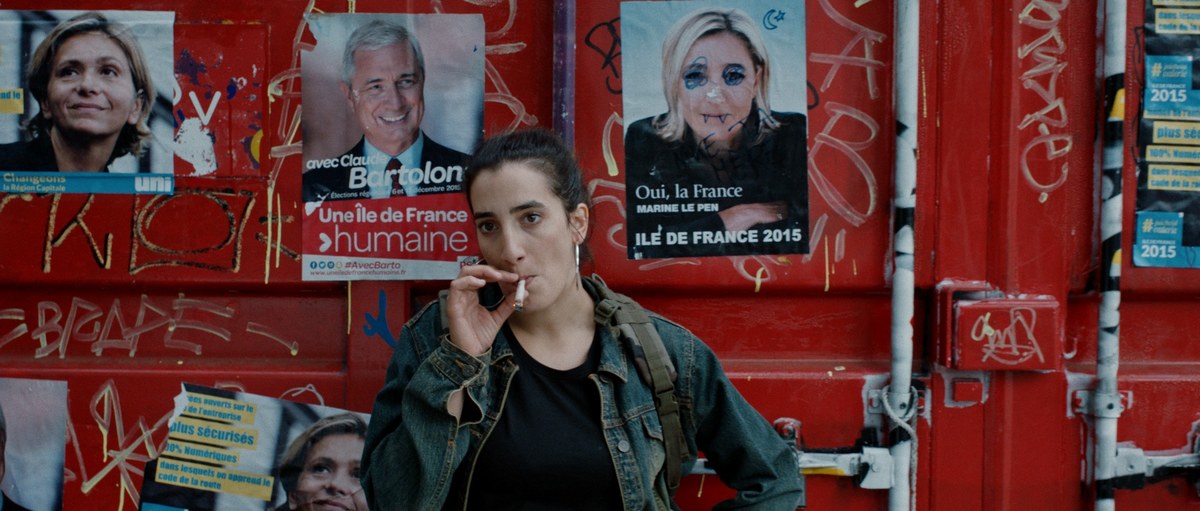Life Style: Demi Lovato criticized for buying ‘fake’ Egyptian artifacts

Egyptian-American filmmaker Dina Amer discusses her debut feature ‘You Resemble Me’
DUBAI: “To be honest, I never thought this film would be screened in Saudi Arabia,” admits the Egyptian-American filmmaker Dina Amer. “For this film, which deals with Islamic radicalization, to be seen and embraced in Saudi Arabia at its first film festival in my lifetime almost felt unbelievable. I felt like I was witnessing this cultural opening in Saudi Arabia and it makes me very proud as a Muslim woman. Because it makes me feel like it’s going to vibrate to the rest of the Muslim world and allow for greater freedoms.”
“You Resemble Me,” which had its Arab premiere at the Red Sea International Film Festival in December, is an adaptation of the life of Hasna Aït Boulahcen and an exploration of the roots of Islamic radicalization. A troubled young woman of Moroccan descent, Boulahcen came from an underprivileged suburb of Paris and endured poverty and abuse throughout her short life. She died with her cousin Abdelhamid Abaaoud, one of the ringleaders of the November 2015 terrorist attacks in Paris, during a police raid in Saint-Denis.
Such is the sensitivity of the film’s subject matter that, despite positive reviews, Amer was nervous prior to the movie’s regional debut in Jeddah.
“I was very concerned because it’s the other polarity,” she says. “In the West, some people might be offended that I even dare to make a film that ‘humanizes a terrorist.’ And meanwhile, she never set off a bomb and she never killed anyone. That was fake news. But here there could be a backlash of, ‘Well, don’t even touch our religion, don’t even weigh in on anything that has to do with our faith, because it’s too sensitive, it’s too touchy.’
“But people came up to me after the film and were like, ‘Thank you so much, I feel inspired to one day make a film or write a script.’ That’s the power of film and storytelling,” she continues. “It can actually inspire others to say ‘I want to do that, too, I have a story to tell.’ And I feel like the power of art is that it offers the opportunity for transformation, for healing, for catharsis — for yourself and for an audience.”

“You Resemble Me” had its world premiere at the Venice International Film Festival last September and stars Mouna Soualem and Sabrina Ouazani. Even Amer herself appears as a version of Boulahcen, with three actors portraying the adult Hasna at different points throughout the film. Such is its emotional intensity that Amer’s directorial debut attracted the support of a host of executive producers, including Spike Lee and Riz Ahmed, and won the Audience Award at the Red Sea International Film Festival.
One of the most striking aspects of the film, however, is the performance of the two girls who play Hasna and her sister Mariam as children. Portrayed by sisters Lorenza Grimaudo and Ilonna Grimaudo respectively, they have a raw energy that is mesmerizing to watch.
“I was very fortunate that I met them on the very first day of casting,” recalls Amer. “They were the last kids to show up and I knew instantly that they were my kids. Because they’re kids from the hood, you know what I mean? They have this kinetic energy and there’s a deep love between them. They lost their father at a young age and so they understand tragedy and they also understand perseverance. They’re like young warriors.”

Amer worked with them both extensively during rehearsals, helping to channel their natural talent. “For me, these two sisters are the real Mariam and Hasna of France today: They’re young, they’re sisters, they love each other, they’re wildly talented. But will France actually make use of their talent? Will they be cast in other projects or will they be told, ‘No, you’re not quite what we’re looking for. You don’t quite belong in this industry’? That would be a shame for France because, internationally, the one unifying comment is ‘Who are those kids?’”
Amer didn’t choose to tell the story of Boulahcen, it chose her, she says. As a journalist working for Vice News, she arrived in the Paris suburb of Saint-Denis a few hours after the explosion that killed Boulahcen. Covering the developing story live on air, she, like everybody else, would report that Boulahcen was Europe’s first female suicide bomber — information that later turned out to be untrue. Amer felt so terrible that she went in search of Boulahcen’s mother, eventually securing the only interview she would give.

“She said I reminded her of her daughter,” says Amer, who co-wrote the film with Omar Mullick following over 300 hours of recorded interviews with Hasna’s family and friends. “And she showed me a picture of Hasna as a child and said ‘This is my child, this is my daughter, not the woman with the niqab who looks scary on the news and is being called a terrorist.’ The family kept on saying ‘You remind us of Hasna,’ and I started to see similarities and parallels to this woman. I understood what it’s like, to a lesser degree, but there’s the same internal conflict that I share with Hasna, which is: How do I, as a Muslim woman living in the West, reconcile my identity?
“I am proud to be Muslim. I am also born and raised in the US and heavily influenced by Western culture. But I’m also Egyptian. There are these pieces and sometimes they feel conflicting, because you’re told that you can’t be Muslim and modern. Or to be Muslim in the West, how do I navigate that as a woman and feel like I’m emancipated? So it’s a tricky thing to traverse and, in the end, when you are unable to reconcile your identity as a third-culture kid, I feel like that leads to that devastating headline in some cases. So I could relate. I spent my whole life actually distancing myself from people like Hasna and feeling like these people are a shame to us; they don’t belong to us. They go down in all the glory saying ‘We’re Muslim’ and they tarnish our identity, you know? And we have to go around saying ‘No, Islam is a religion of peace’ and all the rest.”
It wasn’t until Amer spent time at Rikers Island, one of the largest prisons in the US, that she began to realize that she could not define people by their worst actions. She also realized that every human is worthy of redemption.
“I love that statement that says as soon as you know someone’s story and where they come from, you fall in love with them, because you can see yourself in them,” Amer says. “I don’t believe that people are born pure evil. I believe that things happen to people and that even though we’re not here to justify, we can’t afford not to understand. Because we reap the repercussions of not understanding.”
Noting that the news was copied from another site and all rights reserved to the original source.
xnxx,
xvideos,
porn,
porn,
xnxx,
Phim sex,
mp3 download,
sex 4K,
Straka Pga,
gay teen porn,
Hentai haven,
free Hentai,
xnxx,
xvideos,
porn,
porn,
xnxx,
Phim sex,
mp3 download,
sex 4K,
Straka Pga,
gay teen porn,
Hentai haven,
free Hentai,




